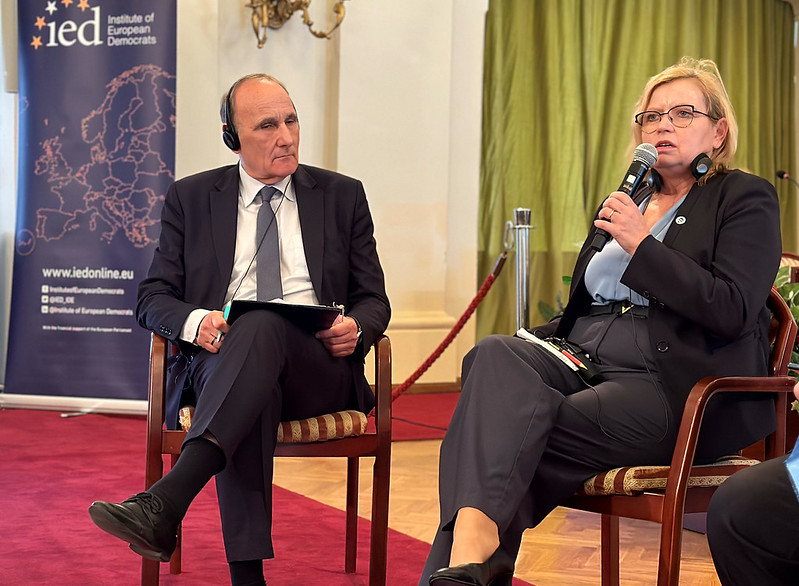New Challenges for the EU:
Why is Euroscepticism getting stronger?
IED Event in Budapest, March 21, 2024
21.03.2024
Opening Remarks
The event commenced with a warm welcome from Mösz (Association of Hungarian Local Government) head and Mayor of Godollo, Gyorgi Gemesi. Following this, Mikel Burzako, CEO of IED, addressed the audience in Hungarian, emphasizing the significance of the current election period and the pressing issue of euroscepticism across Europe.
Keynote Addresses
Gergely Karácsony, Lord Mayor of Budapest
Lord Mayor Karácsony highlighted the increasing influence of populist governments that leverage people's fears—both rational and irrational. While acknowledging the legitimate concern of climate change, he criticized populist politicians for denying it and opposing EU's efforts to combat emissions and promote energy transition. Additionally, he pointed out the exaggerated migration issue in Hungary, used by the government as a diversion from more pressing challenges.
Gerrit Jan Van Otterloo, Netherlands
Van Otterloo discussed the far-right's inability to deliver on their promises, citing the example of Gert Wilders, the newly elected leader of the Netherlands, who failed to form a government, revealing the far-right's limited policy impact.
Andrzej Potocki, Poland
Philosopher and IED board member, Andrzej Potocki, shared insights into countering far-right populism. He emphasized the role of media responsibility, advertising practices, and the need for regulation on social media platforms to combat the spread of populist narratives.
Peter Balaz, Former Foreign Minister of Hungary
Balaz criticized the Hungarian government's approach, highlighting a political advertisement funded by Orban's government. He recounted an anecdote where a child questioned whether the city could move, given a billboard's claim of stopping Brussels. Balaz called for constructive criticism of the EU to enhance its institutions and values rather than undermining them.
Flickr Gallery
Hover on the image to browse through the gallery.
Round Table Discussion Insights
During the round table discussion, three tools were presented to help identify populist rhetoric:
-
Creation of Enemy and Scapegoat: Populists often create external enemies or scapegoats to divert attention from real issues.
-
Oversimplification of Complex Matters: Populists tend to simplify complex issues, offering straightforward solutions that often lack depth or nuance.
-
Polarizing Topics: Topics such as the Middle East conflict and migration are often polarized by populists to exploit public sentiments.
The event concluded with a call to remain vigilant against the rise of euroscepticism and to critically assess political narratives to ensure informed decision-making. Gabi Schmidt who delivered the closing remarks stressed the fact that considerations of all people was a key to insure dignity and satisfaction to the citizens.


